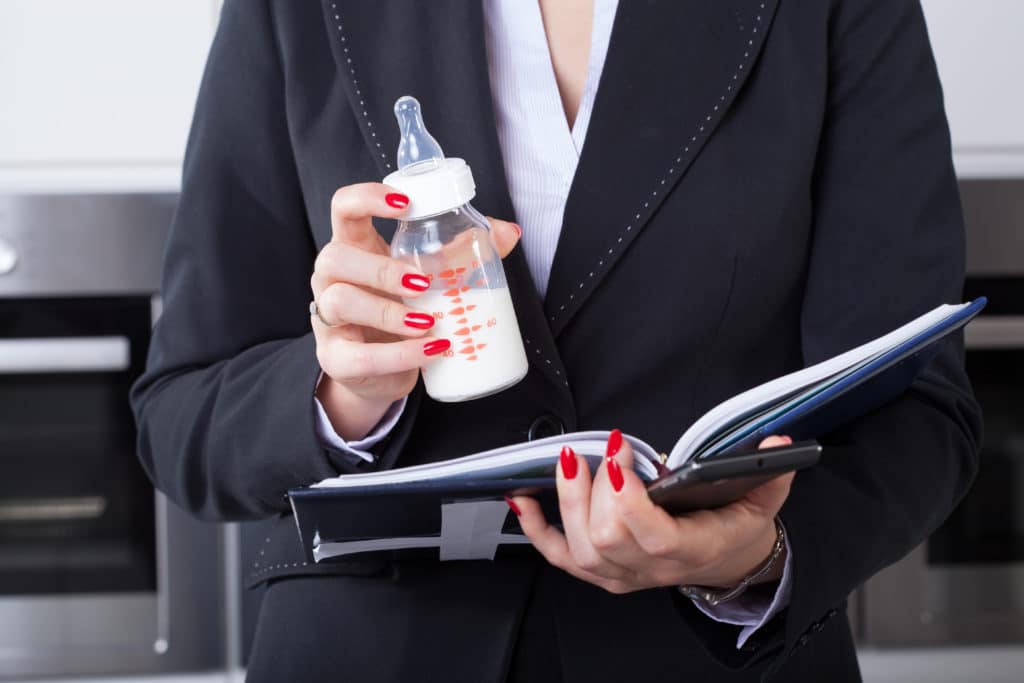 As Certified Breastfeeding Counselors, we know the importance of breastfeeding initiation. We also recognize there are circumstances where formula may be necessary, or desired. As CBCs, we are not anti-formula. However, we are opposed to misinformation and non-evidenced based practices. With more than half of parents exposed to aggressive formula marketing, we are seeing an impact on breastfeeding rates.
As Certified Breastfeeding Counselors, we know the importance of breastfeeding initiation. We also recognize there are circumstances where formula may be necessary, or desired. As CBCs, we are not anti-formula. However, we are opposed to misinformation and non-evidenced based practices. With more than half of parents exposed to aggressive formula marketing, we are seeing an impact on breastfeeding rates.
While breastfeeding is an individual journey, breastfeeding rates are a public health concern. On a population level, we know that lower breastfeeding rates lead to an increase in infant mortality and morbidity. On the induvial level, these outcomes can vary.
One of the biggest issues with aggressive formula marketing is the misinformation. Every parent has the right to receive accurate information and support to reach their breastfeeding goals. Aggressive marketing is known to prevent parents from reaching their personal goals and current infant feeding recommendations.
The WHO and UNICEF monitor breastfeeding rates, recommend against infant formula marketing, and provide evidenced-based policy suggestions. These organizations found that more than half of pregnant and new parents are exposed to aggressive formula marketing.
Aggressive Formula Marketing – A Money Maker
“New report details exploitative practices employed by $55 billion formula industry, compromising child nutrition, violating international commitments.”
On a population level, breastfeeding is vital for optimal maternal infant health outcomes. Early breastfeeding is associated with lower risk of postpartum hemorrhage, improved maternal mental health outcomes (unless there are feeding barriers), and faster involution of the uterus. Ongoing breastfeeding is associated with improved maternal cardiovascular health, improved metabolic health, and lower risk of certain female cancers.
For infants, early breastfeeding provides protection against illness, important antibodies, and early bonding. Ongoing breastfeeding is associated with a lower risk of SIDS/SUDI, lower frequency and duration of common childhood illnesses, and ongoing improved metabolic health.
Yet aggressive formula marketing utilizing misinformation and unethical practices to reduce breastfeeding initiation, quantity, and duration.
The report, How marketing of formula milk influences our decisions on infant feeding, uses interviews with parents, pregnant women, and health workers in eight countries. The report uncovered the systematic and unethical marketing strategies used by formula companies. The formula milk industry is worth a staggering $55 billion. There’s a clear financial incentive to influence parents’ infant feeding decisions.
“This report shows very clearly that formula milk marketing remains unacceptably pervasive, misleading and aggressive,” said Dr Tedros Adhanom Ghebreyesus, WHO Director-General. “Regulations on exploitative marketing must be urgently adopted and enforced to protect children’s health.”
How Many Parents Are Impacted by Marketing?
This report looked at eight different countries. While each country is unique, and not all countries were included, it provides an overall estimate of what many parents in all countries may experience. This report included 8500 parents and pregnant women, plus 300 health workers:
- Participants were in Bangladesh, China, Mexico, Morocco, Nigeria, South African, the UK, and Viet Nam
- 84% of surveyed women in the UK were exposed to formula marketing
- 92% of women surveyed in Viet Name and 97% in China were exposed
- In some countries, up to 98% expressed desire to breastfeed
This means those surveyed who were exposed have their feeding decisions influenced by marketing with a purely financial goal.
“False and misleading messages about formula feeding are a substantial barrier to breastfeeding, which we know is best for babies and mothers,” said UNICEF Executive Director Catherine Russell. “We need robust policies, legislation and investments in breastfeeding to ensure that women are protected from unethical marketing practices – and have access to the information and support they need to raise their families.”
There is the International Code of Marketing of Breast-milk Substitutes (the Code) – a landmark public health agreement passed by the World Health Assembly in 1981. However, with only some countries adopting this agreement, it is nearly impossible to truly enforce on a global level. Many marketing companies also find ways around the agreements with subtle word changes, marketing towards toddlers, and more.
How Do We Combat Misinformation?
We live in an age where there’s constant misinformation floating from peers. However, it is even more difficult when companies, supposed health professionals, and more can provide false information to the public – including health professionals.
WHO, UNICEF and partners are calling on governments, health workers, and the baby food industry to end exploitative formula milk marketing and fully implement and abide by the Code. While it has been in place since 1981, it not properly enforced in all countries. In fact, some countries, such as the US, refused to be involved with and accept the Code.
“The Code includes:
- Passing, monitoring and enforcing laws to prevent the promotion of formula milk, in line with the International Code, including prohibiting nutrition and health claims made by the formula milk industry.
- Investing in policies and programs to support breastfeeding, including adequate paid parental leave in line with international standards, and ensuring high quality breastfeeding support.
- Requesting industry to publicly commit to full compliance with the Code and subsequent World Health Assembly resolutions globally.
- Banning health workers from accepting sponsorship from companies that market foods for infants and young children for scholarships, awards, grants, meetings, or events.”
However, given that it is a $55 billion industry, there is significant incentive to lobby against countries implementing the code.
As CBCs, you can do your best to help educate your clients during the prenatal and postpartum period. You can work in your community and country to help encourage appropriate policies.